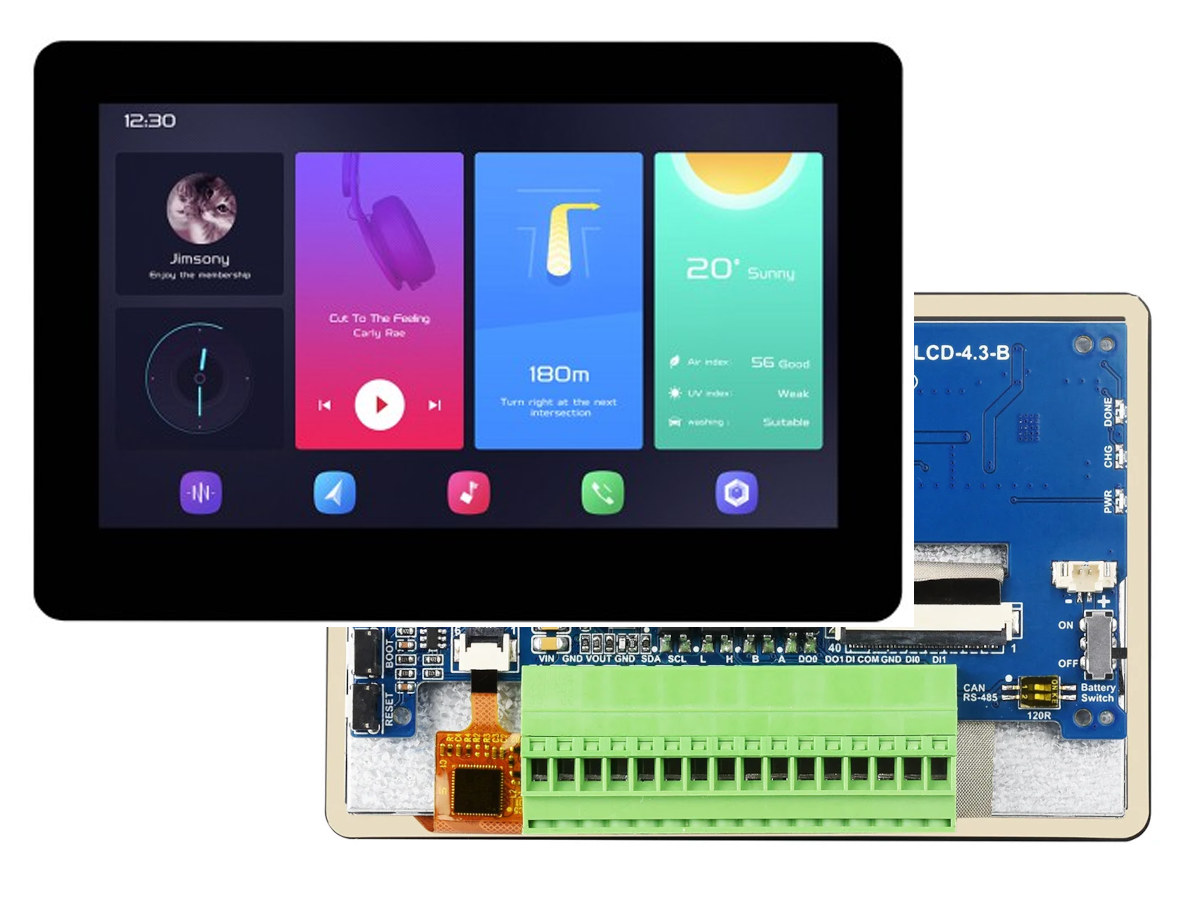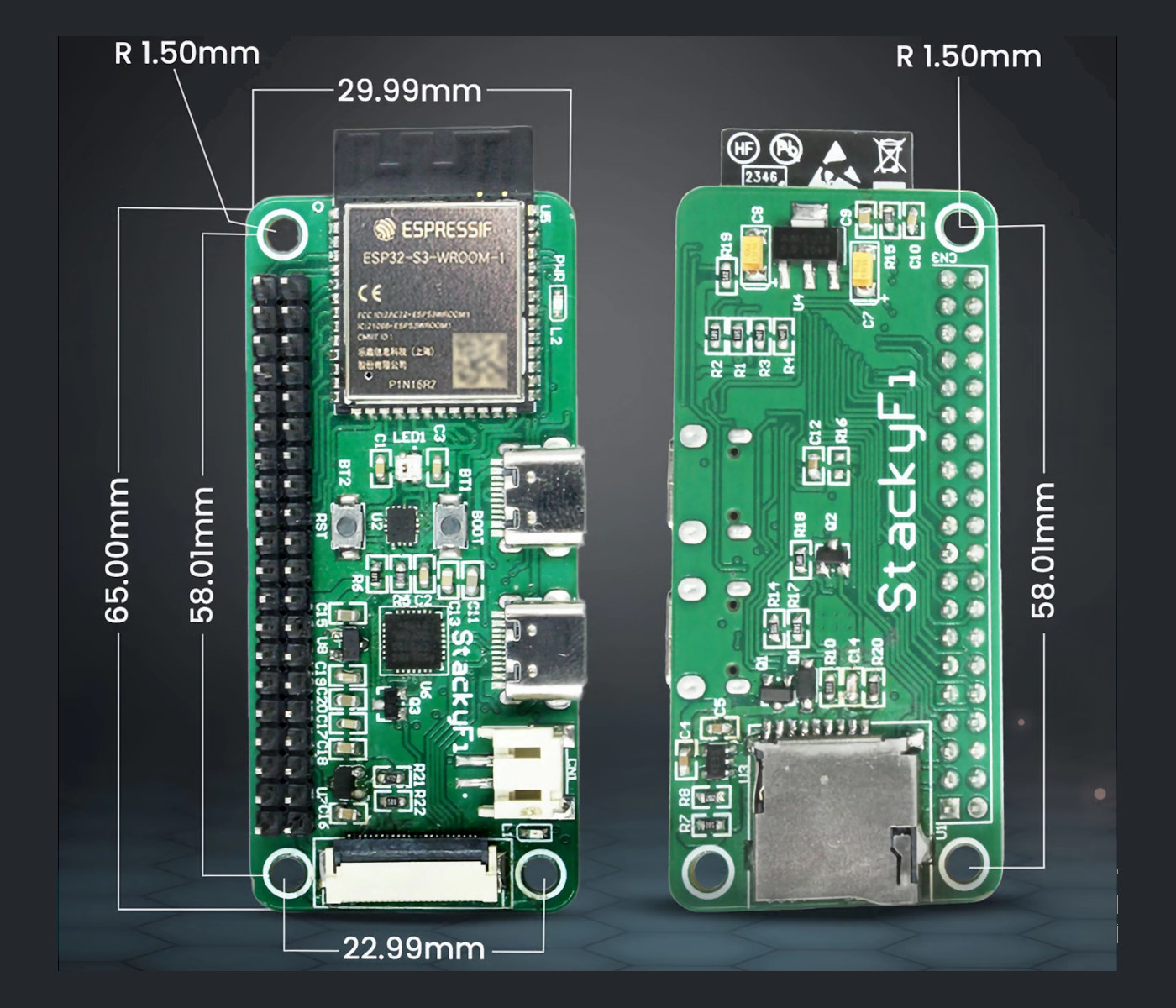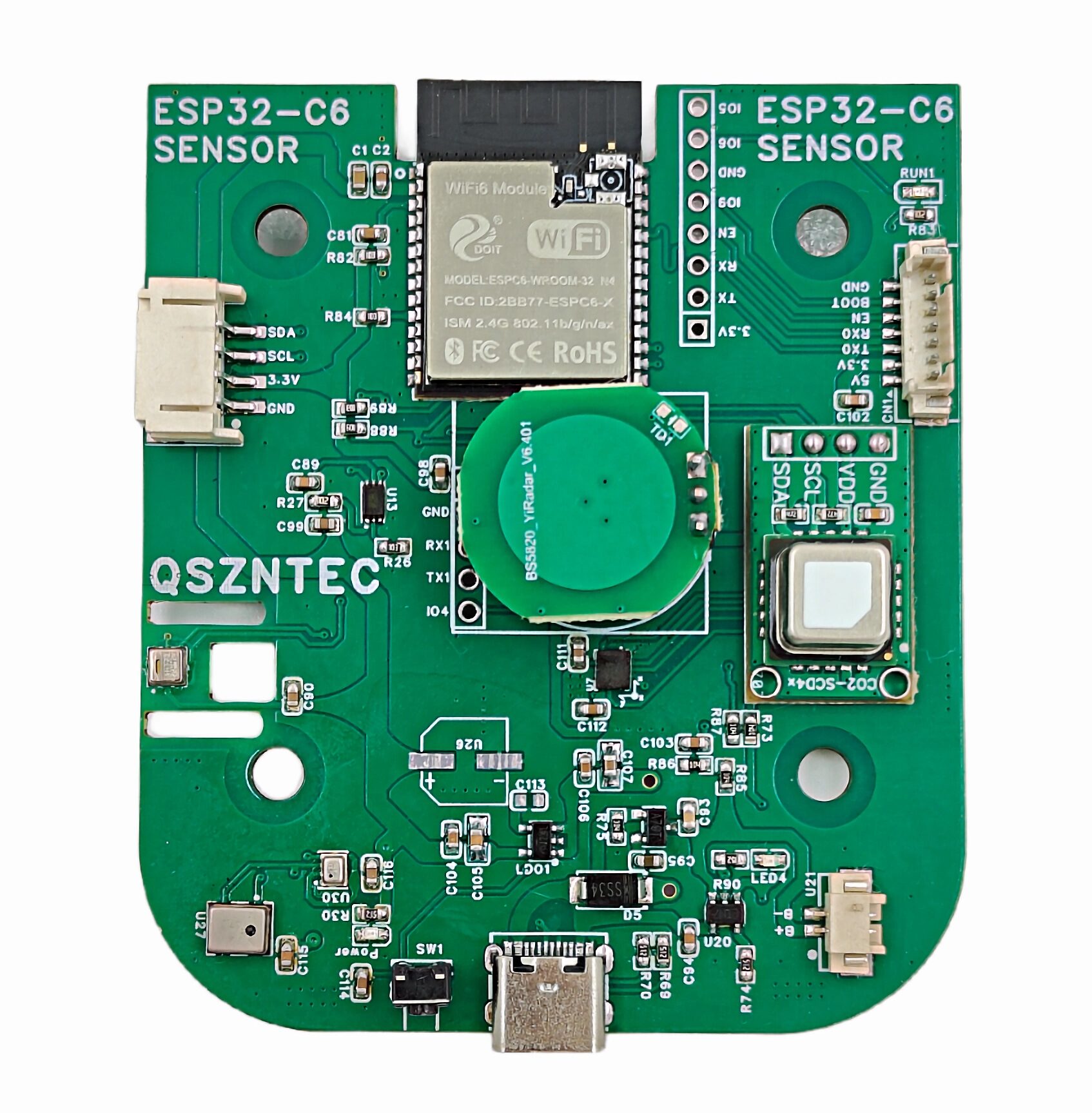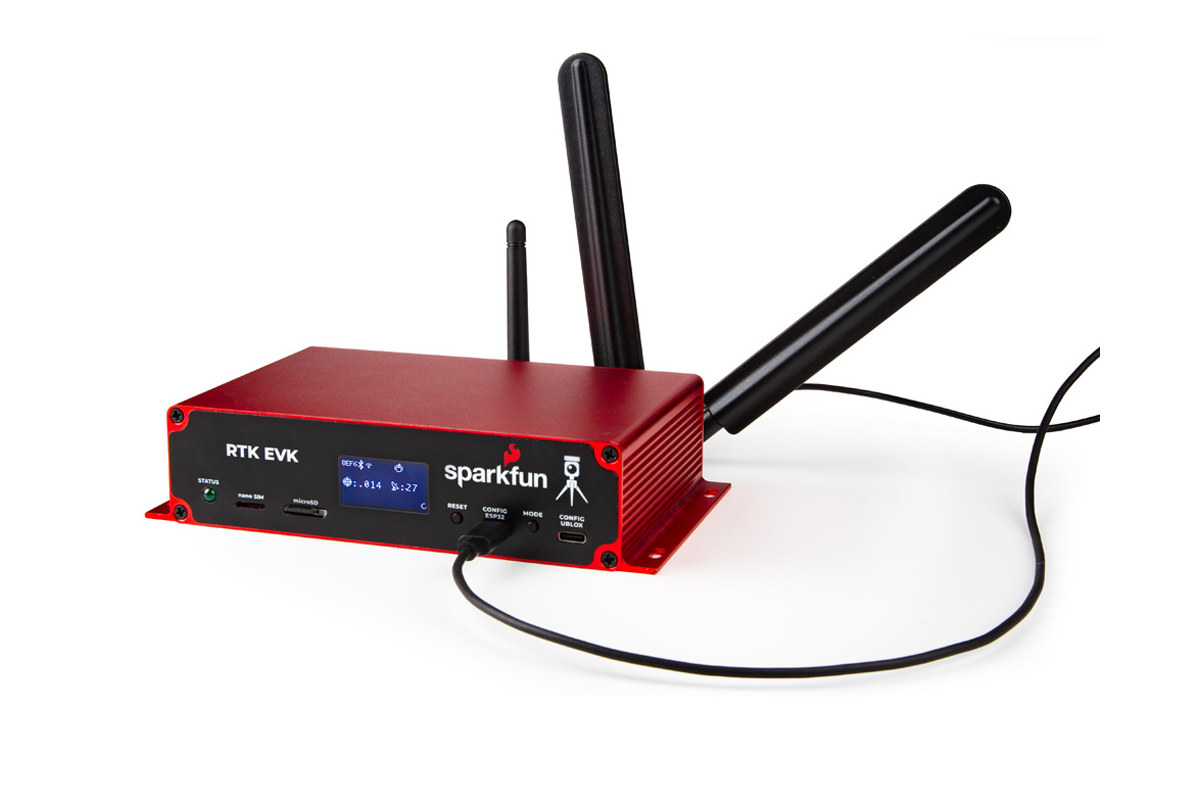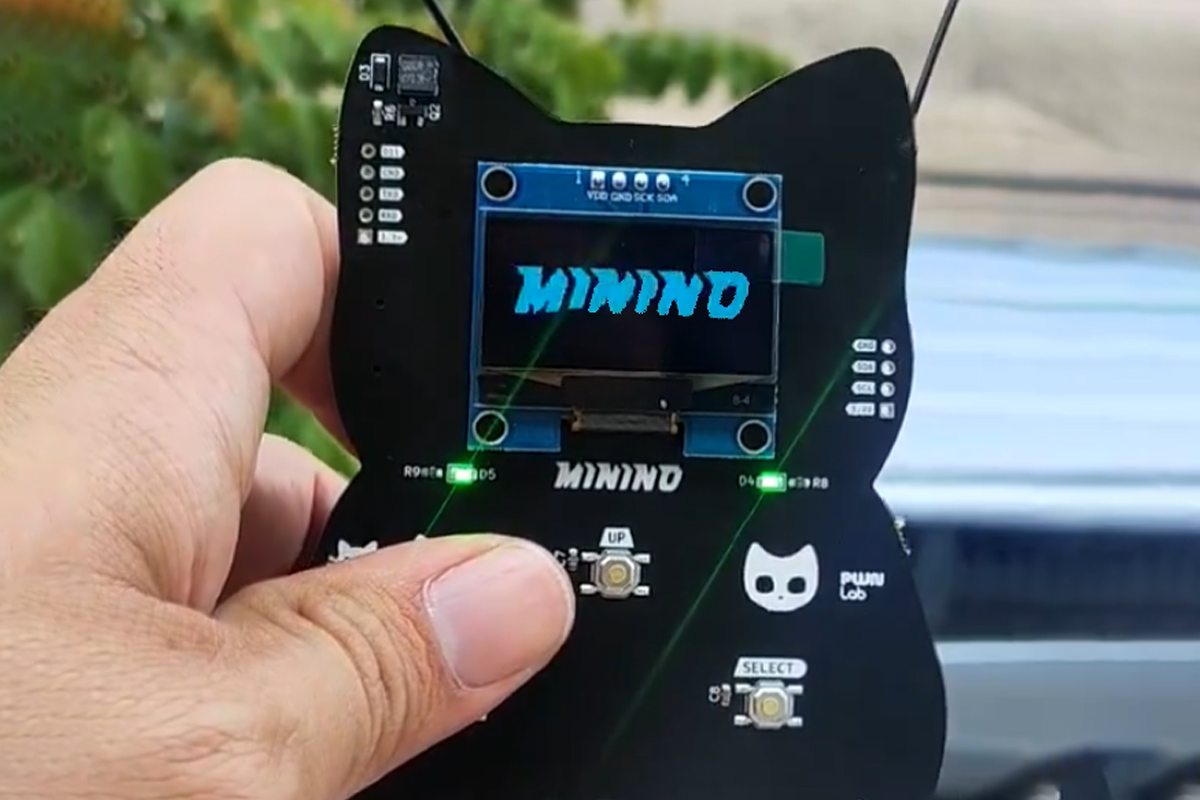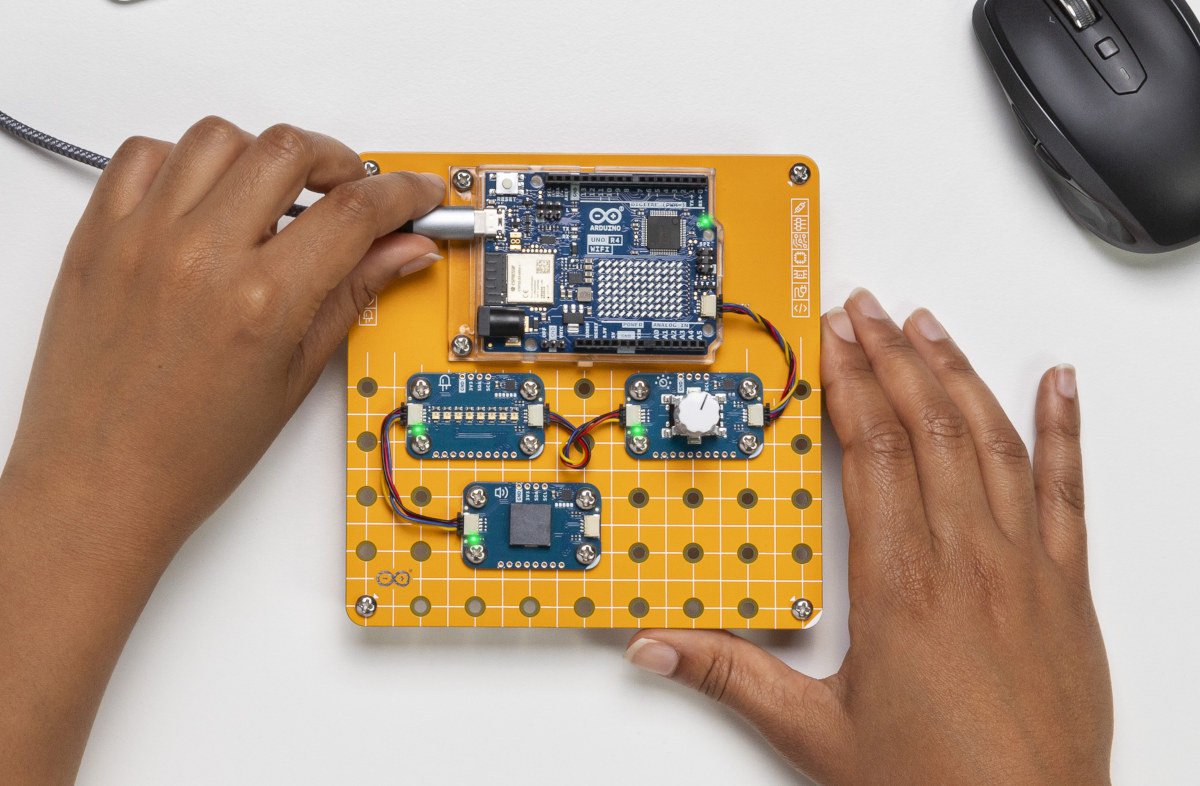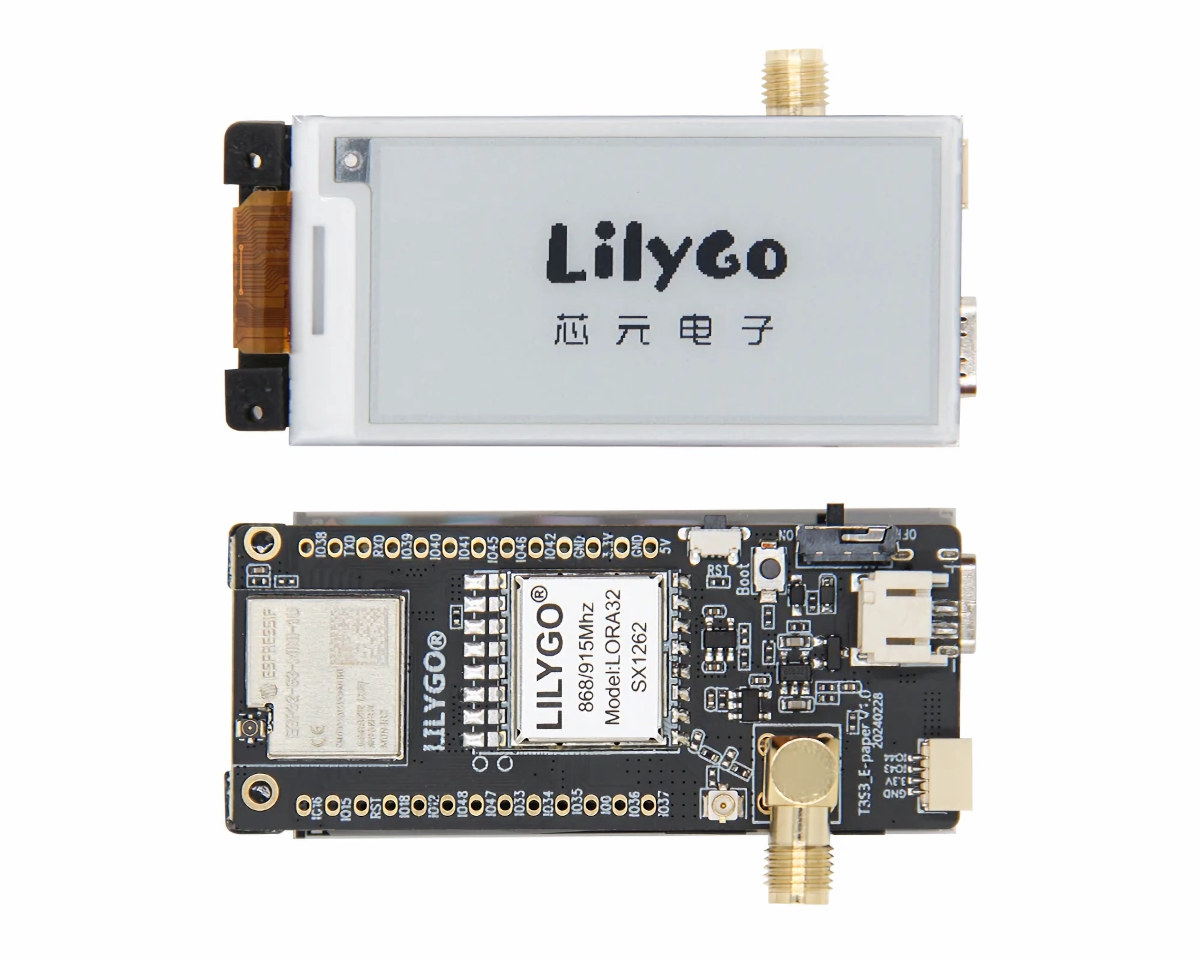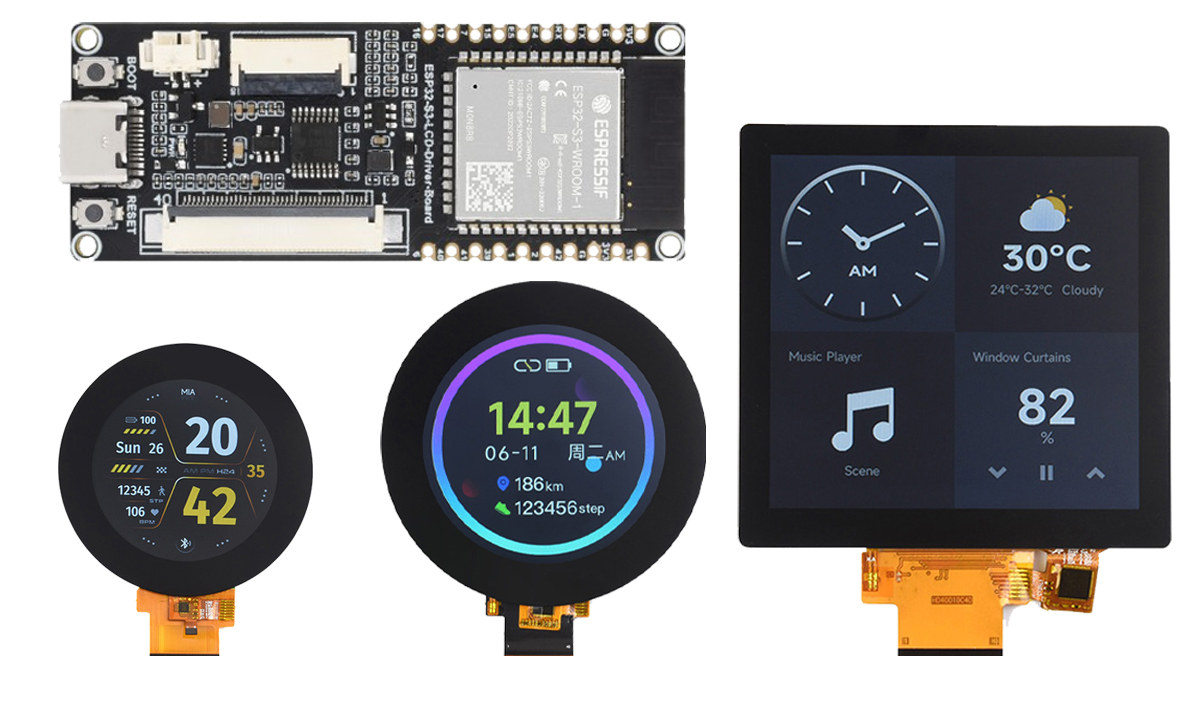Waveshare “ESP32-S3-Touch-LCD-4.3B” is a capacitive touch display development board built around an ESP32-S3 SoC with RS485, CAN Bus, I2C, and isolated DIO interfaces provided through a terminal block. The devkit features a 4.3-inch capacitive touch display that has an 800×480 resolution, RTC, and a microSD card slot. Combined with a wide input voltage range of 7-36V DC, the ESP32-S3-Touch-LCD-4.3V is suitable for IoT HMI, smart home automation, and more. Previously we have written about similar development boards from Waveshare like the ESP32-S3 1.69-inch touch display, the $15 Waveshare 1.69-inch IPS touch LCD module, the Waveshare RP2040-LCD-0.99-B rounded display but they would offer no expansion pins or GPIO through pads or 4-pin connectors, while the ESP32-S3 display features a terminal block with additional interfaces like RS485 pr CAN Bus that should make wiring more convenient and versatile for the target applications. Waveshare ESP32-S3 touch LCD specifications: Wireless MCU – Espressif Systems ESP32-S3R8 […]
StackyFi ESP32-S3 board features camera connector, 40-pin GPIO header for Raspberry Pi HAT (Crowdfunding)
SB Components’ StackyFi is an ESP32-S3 WiFi and Bluetooth IoT board with a 40-pin GPIO header compatible with most Raspberry Pi HAT expansion boards and a camera connector for image capture to a microSD card or machine learning applications. The Raspberry Pi Zero-sized board also comes with two USB Type-C ports, one “native” and the other for serial debugging, an IMU sensor, an RGB LED, and Boot and Reset buttons. The board can be powered through one of the USB-C ports or a LiPo battery. It partially builds upon the earlier StackPi board with a Raspberry Pi RP2040 microcontroller. StackyFi specifications: Wireless module – ESP32-S3-WROOM-1 MCU – ESP32-S3 dual-core Tensilica LX7 up to 240 MHz with 512KB SRAM Memory – TBD PSRAM Storage – TBD flash Wireless – WiFi 4 and Bluetooth LE 5 PCB antenna Storage – MicroSD card Camera I/F – FPC connector that works with OV2640 camera […]
Qsen-07 multi-sensor wireless board can detect CO2, VOC, temperature, humidity, ambient light, and attitude
The Qsen-07 multi-sensor board is an ESP32 wireless development board that combines several useful sensors into one device, making it easier to control, monitor, and enhance your home environment. It is a recent product from Maker Go, a China-based hardware company, which claims the board is “fully integrated with ESPHome and Home Assistant“. But as noted in a reader’s comment below, ESPHome on ESP32-C6 is still a work in progress, and the YAML configuration file for the board has yet to be provided by the company. The Qsen-07 multi-sensor board is “designed for health-conscious and tech-savvy homeowners” and can monitor air quality and other environmental variables to ensure a safe and smart living space. It features up to seven sensors, including two air quality sensors, a temperature and humidity sensor, an ambient light sensor, a barometric pressure sensor, an attitude gyro sensor, and an optional radar sensor. The Aosong AGS10 […]
SparkFun RTK EVK offers GNSS with centimeter accuracy, WiFi, Bluetooth, 4G LTE Cat 1, and Ethernet connectivity
SparkFun RTK EVK is a fully-enclosed GNSS platform designed for fixed or mobile high-precision positioning and navigation applications with centimeter accuracy thanks to RTK (real-time kinematic) technology implemented with modules from u-blox. About two months ago, Sparkfun introduced the RTK Torch waterproof GNSS surveyor with Unicore UM980 GNSS module with RTK support, ESP32 for WiFi/Bluetooth, and an STM32WLE5C LoRa SoC. The SparkFun RTK EVK (evaluation kit) may drop LoRa connectivity, but it’s a more versatile platform with WiFi, Bluetooth, Ethernet, and LTE Cat 1 cellular connectivity, besides support for L1 + L2 RTK GNSS with L-Band correction. Sparkfun RTK EVK specifications: GNSS Receiver – u-blox ZED-F9P Concurrent reception of GPS, GLONASS, Galileo, and BeiDou Receives both L1C/A and L2C bands 184-channel u-blox F9 engine Time to First Fix: 25s (cold), 2s (hot) Max Navigation Rate: 20Hz / 25Hz depending on mode Horizontal Position Accuracy: 2.5m without RTK; 0.010m with RTK […]
Minino ESP32-C6 board is designed for IoT security and penetration testing
Minino security tool is a kitty-shaped ESP32-C6 powered cybersecurity device for analyzing 2.4GHz communications and probing IoT devices. It supports Bluetooth Low Energy, Wi-Fi 6, Zigbee, Thread, and Matter, and has a dedicated GNSS radio for receiving signals from various satellite constellations. Minino is compatible with CatSniffer analysis tools and Wireshark software, and can log packet captures on a microSD card. These features make this suitable for applications like assessing IoT device security, network analysis, and wireless protocol research. We have previously written about similar IoT security and pen testing tools like the ESP8266 and ATmega32U4-based Diabolic Drive, the ESP32 Marauder Pocket Unit v2, the ThingPulse Pendrive S3, and many others, feel free to check those out if you are interested in the topic. Minino security tool specifications Wireless Module – ESP32-C6-WROOM-1U SoC – ESP32-C6 CPU Single-core 32-bit RISC-V clocked up to 160 MHz Low-power RISC-V core @ up to […]
Beginner friendly Arduino Plug and Make Kit features Arduino UNO R4 WiFi and Modulino I2C modules
Arduino has just launched a “Plug and Make” kit designed for beginners with an Arduino UNO R4 WiFi board, several “Modulino” modules, a “Modulino” base to neatly attach the UNO R4 and modules, and various cables, spacers, screws, and nuts. When thinking about Arduino projects, breadboards or even soldering may come to mind, but the new Arduino Plug and Make Kit does not require any of those. No breadboard, jumper wires, or soldering needed. Users can simply connect the modules to the Arduino board through Qwiic cables, neatly attach everything together on the provided base, and follow one of the seven projects complete with step-by-step instructions provided with the kit. The Arduino Plug and Make Kit content Arduino UNO R4 WiFi board 7x Modulino I2C nodes Modulino Knob* – Encoder for value adjustments Modulino Pixels* – 8x LC8822-2020 RGB LEDs Modulino Distance – STMicro VL53L4 Time-of-Flight (ToF) proximity sensor to […]
LILYGO T3S3 E-Paper combines ESP32-S3 WiFi & BLE SoC with LoRa module, 2.13-inch e-Paper display
LILYGO T3S3 E-Paper is an ESP32-S3 WiFi and Bluetooth LE development board with a 2.13-inch e-Paper display and an SX1262 LoRa module that should make it suitable for off-grid messsaging even under sunlight. LILYGO has made some ESP32-S3 boards with an e-Paper display and some ESP32-S3 boards with a LoRa module, but unless I’m mistaken, the T3S3 E-Paper is the first board from LILYGO that combines ESP32-S3 SoC with e-Paper display and a LoRa module. It builds upon the earlier LILYGO T3S3 board with a 0.96-inch OLED. LILYGO T3S3 E-Paper specifications: ESP32-S3-WROOM-1U wireless module SoC – ESP32-S3FH4R2 dual-core Tensilica LX7 microcontroller @ up to 240 MHz with 2.4 GHz 802.11n WiFi 4 and Bluetooth 5.0 LE connectivity Memory – 2MB PSRAM Storage – 4MB SPI flash IPEX antenna connector Storage – MicroSD card slot Display – 2.13-inch e-Paper display (DEPG0213BN) with 250×122 resolution; size: 48.55 x 23.70mm Wireless 2.4 GHz […]
ESP32-S3 LCD Driver Board supports both circular and square displays
Waveshare ESP32-S3 LCD Driver Board is a compact development board designed to simplify the GUI development process. The company mentions that the board supports 2.1-inch, 2.8-inch, and 4-inch displays and with an additional SPI and I2C header it can support a wide range of LCD panels. Additionally, the board features an onboard lithium battery charger and 15 usable GPIO pins for added flexibility. These features make this device suitable for applications like smart home devices, industrial control panels, and interactive kiosks. It seems like the board supports the 4-inch LF40 square touchscreen display that we wrote about just yesterday. other than that it also supports 2.1-inch and 2.8-inch circular displays. Seeking off circular displays, we have previously written about some ESP32-powered development boards with circular displays like the Waveshare 1.69-inch IPS touch LCD, the Waveshare RP2040-LCD-0.99-B, the Waveshare ESP32-S3-LCD-1.28 and many other types of displays. Feel free to check those […]


